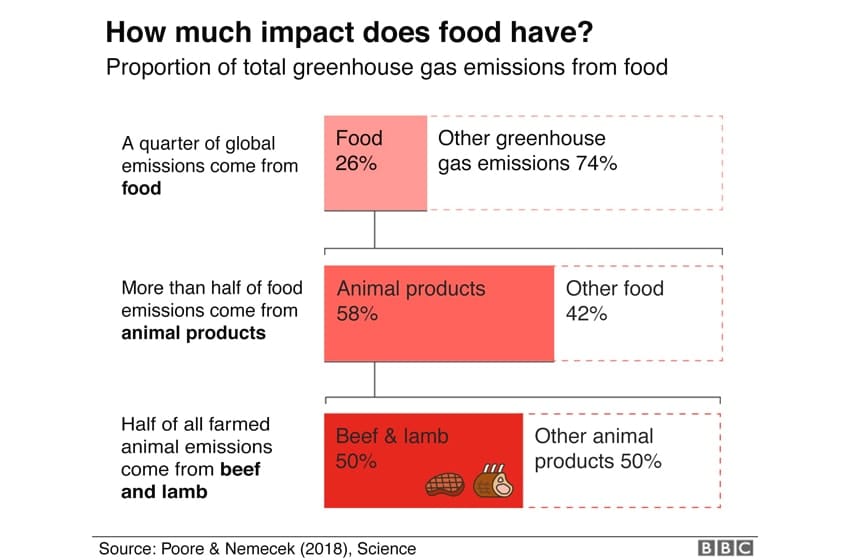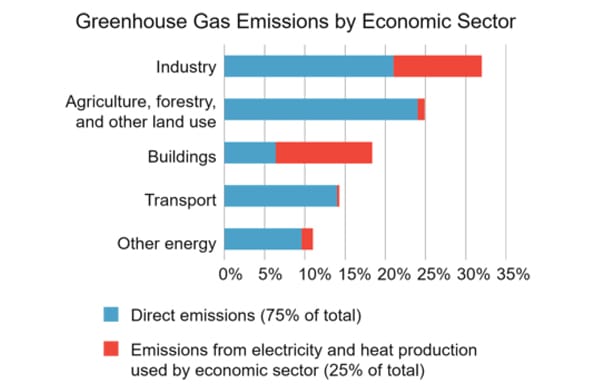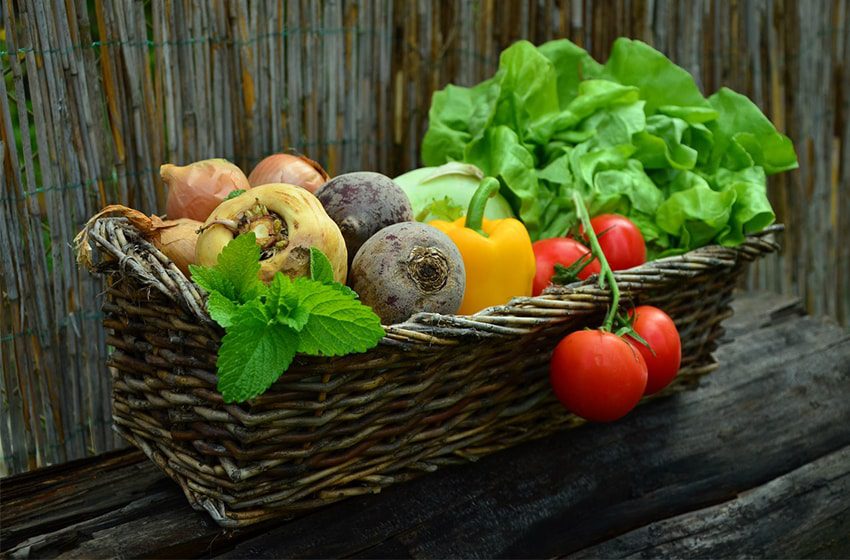A new UN report says switching to a plant-based diet can help fight the climate change and global warming.
The report warns that the efforts to curb the emissions of greenhouse gases and the impact of global warming will fall significantly short if there is no drastic change in the global land use, agriculture, as well as human diet.
The document was finalized and presented by 107 scientists for the Intergovernmental Panel on Climate Change (IPCC) of United Nations in Geneva, Switzerland. It was released on 8 August, 2019. The Greenpeace activists in Switzerland also unveiled a banner ahead of the report’s release which reads “Less Meat=Less Heat. Climate Action NOW!”
The panel said that global population growth and changes in diet patterns have caused unprecedented rates of land and water use. They suggested that switching to plant-based food can help us fight the climate change in a meaningful way.
They also warned that the delay in action could result in some irreversible impacts on ecosystems. This in longer term has the potential to accelerate global warming.
Food and climate change
Most agricultural activities emit significant amounts of greenhouse gases. In addition, food supply chains also emit greenhouse gases due to activities such as storage, transportation, packaging and consumption of energy.
Gases produced by livestock are a major factor in global warming.
People in the west consume large amounts of meat and dairy produce, which is considerably fueling global warming. Due to enteric fermentation processes and manure storage, meat and dairy emit a much higher amount of greenhouse gases than growing crops.

The main greenhouse gases from animal agriculture are methane and nitrous oxide. Methane is a gas which has an effect on global warming 28 times higher than carbon dioxide. While, nitrous oxide is a molecule with a global warming potential 265 times higher than carbon dioxide.
Carbon dioxide equivalent is a standard unit used to measure the global warming potential.
The comprehensive report suggested that changes in diet patterns, comprising of plant-based foods and sustainable animal-sourced foods, holds the key to free up several million square kilometers of land by the year 2050. It can also cut up to 8 gigatonnes of carbon dioxide equivalent annually.
More clarification on diet
“We are not telling people to give up meat completely. There are some places where people have no other choice. But it’s obvious that people in the west are eating way too much,” says Professor Pete Smith, Environmental Scientist from Aberdeen University, UK.
“IPCC does not recommend diets to people. What we have pointed out on the basis of scientific evidence is that there are certain diets that have a lower carbon footprint,” says Jim Skea, Co-Chair of IPCC.
A notable statistic cited in the UN report tells us that Americans avoided 271 million metric tonnes of emissions by simply reducing the consumption of beef from year 2005 to 2014.
Also Read: 10 Best Superfoods You Should Consider Eating Every Day
We are also wasting a lot of food. Food wastage is directly connected with greenhouse gas emissions. It can result in desertification and soil damage which contributes to climate change significantly.
In 2011, food loss and waste resulted in about 8 – 10% of greenhouse gas emissions of the entire food system.
Experts warn that plans by some governments to grow trees for the sole purpose of burning them to generate electricity will further intensify the global warming, unless carried out on a limited scale.

Steps we can take to reduce the problems
Reforming the way humans use the land and natural resources is a difficult task. There must be a major shift in the farming methods as well as consumption of food. Experts urge people to:
- Protect natural forest, especially in the tropical regions
- Eat less red meat and more fruits and vegetables
- Protect and restore peat lands
- Reduce the wastage of food
- Promote agro-forestry
- Improving the variety of crops
It has been said that the recent unpredictable climatic behavior of our planet could be the effect of climate change. Although it needs more research, but the climate change is real and does not require much evidence.
While reducing food waste to zero might not be possible, there can be methods to reduce food wastage and minimize its impact on environment.
Summing up, the UN report pitches for changing human diet patterns towards organic, plant-based foods to reduce global warming.

Hello reader, I’m Abhishek Shankhwar, a mental health & wellness enthusiast and a digital marketing specialist by profession. As a passionate health and wellness writer, I feel obligated to inform, inspire, and reach out to so many people. In the meantime, you’ll always find me reading books, writing inspiring content, and cooking delicious food. Connect with me on LinkedIn.





































